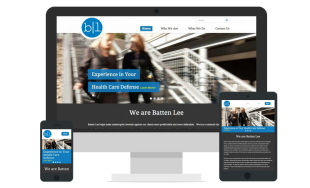A few months back, I had the pleasure of attending the 2016 Law Tech Expo, an event put on by the Law Practice Management and Technology Section of the North Carolina Bar Association. All of the sessions on developments in legal technology and marketing were engaging and informative, but I was most struck by what my fellow legal marketer Ginny Allen had to say on the topic of ethics in digital marketing for attorneys in North Carolina.
The North Carolina State Bar, the regulatory entity of the legal profession here in N.C., has worked hard to keep up with the ever-changing atmosphere of today's digital realm. Gone are the days of simply regulating what an attorney says about their firm in a newspaper or television ad. With the proliferation of websites and social media, it's become increasingly difficult to keep tabs on what is and what is not seen as "ethical marketing" in the legal profession. Following Law Tech Expo, I wanted to gather all of the best guidelines in one place for both our team and our law firm clients to help guide content development on current and future projects.
It should be noted that this post focuses on North Carolina's Rules of Professional Conduct, and these rules are not necessarily applicable to firms in other states. As a firm that develops law firm website designs for groups across the country, we encourage clients to look into their state's given rules and regulations surrounding ethics in digital marketing, especially as it applies to content development.
The Big No-Nos
- Claiming to be a "Specialist" and/or use of the words "specialty/specialties/specializes" Simply put, don't do it, unless you are a board certified specialist in an area of law in North Carolina, any use of a word with the root "specialty" in descriptions of your practice and its areas of focus should not be on your site. (RPC 7.4)
- Claiming to be an "expert" While not mentioned outright, use of the word "expert" to describe yourself or your practice could be construed as misleading under RPC 7.1, unless you can back it up with "fact," as this great piece from The Brocker Law Firm points out.
- Comparing yourself and your services to other firms or attorneys Stay away from this generally. (RPC 7.1, Comment 3)
When Do I Need a Disclaimer?
- If a client testimonial speaks to your characteristics or as Ginny put it, your "soft skills" as an attorney, you do not need a disclaimer. (RPC 7.1, 2012 FEO 1)
- If a client testimonial generally refers to results, then you do need a disclaimer. (RPC 7.1, 2012 FEO 1)
- If you include any case studies or generic statement on verdicts on your site, you do need a disclaimer that states that past success is not a predictor of future success. (RPC 7.1, FEO 1)
- If you include any awards you've won on your site, including Super Lawyers, Business North Carolina's Legal Elite, Best Lawyers in America, etc, you should include a link to the award-issuing website that explains the methodology they use to select winners.
- If you include stock photography on your site, you do not need a disclaimer listing them as such unless they are materially misleading photographs. (RPC 7.1, 2010 FEO 9)
Your Firm, Your URL
- Your URL does not have to include information or words that make it clear it's for a law firm, however it cannot be misleading. (RPC 7.5, 2005 FEO 14)
- Your URL is a trade name for your firm that must be registered with the N.C. State Bar. (RPC 7.5, 2005 FEO 8)
More Tips to Keep in Mind
- Do not create unjustified expectations about possible results. (RPC 7.1, Comments 1-4)
- Do not include any information about fees, especially in comparison to other firms or attorneys. (RPC 7.1, Comment 3)
- Be sure to include a listing -- we recommend on the attorney bio page -- of the jurisdictions where firm attorneys are licensed to practice.
There's no doubt that North Carolina's Rules of Professional Conduct will continue to adapt to technological advances that create new marketing opportunities for law firms. With that thought in mind, we'll be updating this list regularly with the newest rulings and decisions, so if maintaining a law firm website is part of your job description, we hope you'll plan to save it to your Pocket ;) for future reference!




Leave the first comment